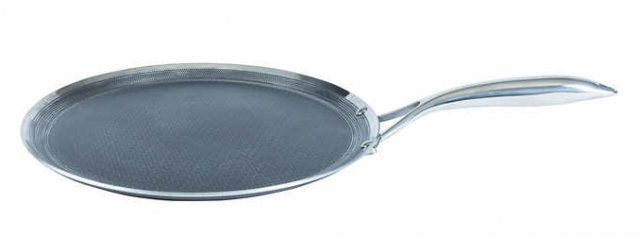When my economist husband tells me an modern article is both consistent with everything he learned about economics in college and in life, and has also taught him something new, I take notice. The article in question is Inflation Reaches Unicorns, by John Mauldin, and should be accessible at that link.
It truly is about economics: investments, venture capitalists, inflation, and yes, even unicorns ("large, well-known companies [which] are choosing to stay private long past the point where they would once have gone public"). It's a cogent and interesting analysis of how we got where we are and where we might be going.
However, what really made me perk up was some excerpts from a forthcoming book by Edward Chancellor, entitled, The Price of Time: The Real Story of Interest. Here Chancellor is actually quoting "Bastiat"—probably French economist Frédéric Bastiat—and it's not clear to me where one ends and the other begins. It's the thought that counts.
In the sphere of economics, a habit, an institution, or a law engenders not just one effect but a series of effects. Of these effects only the first is immediate; it is revealed simultaneously with its cause; it is seen. The others merely occur successively; they are not seen; we are lucky if we foresee them. The entire difference between a bad and a good Economist is apparent here. A bad one relies on the visible effect, while the good one takes account of both the effect one can see and of those one must foresee.
The bad economist, says Bastiat, pursues a small current benefit that is followed by a large disadvantage in the future, while the good economist pursues a large benefit in the future at the risk of suffering a small disadvantage in the near term. The American journalist Henry Hazlitt elaborated ... in his bestselling book Economics in One Lesson (1946). Like Bastiat, Hazlitt lamented the "… persistent tendency of men to see only the immediate effects of any given policy, or its effects on only a special group, and to neglect to inquire what the long-run effects of that policy will be not only on the special group but on all groups. It is the fallacy of overlooking secondary consequences."
As I read this, what struck me was its applicability to much more than economics. In particular, read the above paragraphs with an eye to the response of our leaders to the COVID-19 crisis, and you'll see a stunningly accurate description of "bad economics." A more obvious example can hardly be imagined of considering only the immediate effects of a policy, and its potential effects on only a special group, while not only neglecting, but actively suppressing, any thoughts about what might be the long-run effects of that policy on the community as a whole.
[This post was originally entitled, "Camouflage"; I've now changed that to make it part of my "YouTube Channel Discoveries" series.]
Here's another YouTube channel we've been enjoying: Chris Cappy's Task and Purpose. How on earth could I enjoy videos about military tactics, strategy, history, and weapons? Here's a quote from the channel's About section:
Chris Cappy the host is a former us army infantryman and Iraq Veteran. This YouTube channel is a forum for all things military. From historical information to the latest news on weapons programs. We discuss all these details from the veteran's perspective. The first priority with our videos is to be entertaining.
I guess it's the last sentence. Chris Cappy is knowledgeable and entertaining. He may bill himself as "your average infantryman," but he's not your average military college professor droning on in the front of an auditorium filled with bored students.
The video that hooked me is the one below, How Camouflage Evolved (15 minutes). I'm certain we have grandchildren who would find it as enjoyable as I did.
Permalink | Read 1437 times | Comments (0)
Category Reviews: [first] [previous] [next] [newest] Education: [first] [previous] [next] [newest] Random Musings: [first] [previous] [next] [newest] Just for Fun: [first] [previous] [next] [newest] YouTube Channel Discoveries: [first] [previous] [next] [newest]
A friend, who has been experiencing the dating scene, offered the following warning. I just fancied it up a bit.
Permalink | Read 746 times | Comments (0)
Category Children & Family Issues: [first] [previous] [next] [newest] Just for Fun: [first] [previous] [next] [newest]
Back in another life, I worked for the University of Rochester Medical Center. However, that was not how I met David H. Smith, the discoverer and developer of the now-common vaccine against Hemophilus influenzae b. That relationship began when my gynecologist suggested that I might want to help Dr. Smith out with his latest research project.
The following quotes are from the URMC article linked above, which recently came to my attention and inspired this post.
After training in pediatrics at Children's Hospital Medical Center in Boston, Dr. Smith served as a captain in the US Army in Japan. While a medical officer, he became the first to link chronic granulomatous disease to a deficiency in white cells. Back at Harvard, he continued his postdoctoral research in molecular genetics and bacteriology and served as chief of lnfectious Diseases at Children's Hospital from 1965 to 1976.
Harvard's legendary professor, Charles Janeway, an early researcher on the human immune system, became Smith's role model and mentor. At a time when much research focused on antibiotics, Janeway challenged his young doctors to expand their vision. At the bedside of a child enduring the agony of meningitis, Janeway said, One of you should try to find a vaccine to prevent this terrible disease. David Smith took up that challenge, and a I5-year quest was begun.
While at Harvard, he continued studying the biology and epidemiology of bacterial drug resistance factors and in 1968 began the search for a vaccine to protect against Hemophilus influenzae b., the cause of bacterial meningitis. Working in close partnership with Dr. Smith was his research colleague Porter W. Anderson, Ph.D.
In 1976, Dr. Smith was called back to the University of Rochester to chair the Department of Pediatrics. ... Dr. Smith and his research team worked flat out on the search for a Hib vaccine. By the early 1980s, the first Hib vaccine had been tested, licensed, and was being produced in a small laboratory within the medical school.
When I entered the scene, in early 1978, Smith and Anderson had a vaccine that worked for older children, but nothing to protect infants and very young children, a critical, dangerous gap. The research project that I joined was working to address the problem by vaccinating women who were hoping to become pregnant, and following their immune responses, through testing for antibodies in the mothers' blood during pregnancy, the babies' blood after birth, and also in breast milk.
It worked! I had a proper immune response, as did our child, who gained further protection through my milk.
I don't know what steps led from that study to the eventual development and acceptance of the H flu b vaccine in use today (it's now called Hib), but even though it was not yet publicly available, they—at my request—very kindly provided it to our second child, born in 1982.
Stung by the resistance of any major pharmaceutical company to buy rights to the vaccine, Dr. Smith decided to create his own pharmaceutical firm. In 1983, he resigned his chairmanship and founded Praxis Biologics. ... By 1989, Praxis had the largest number of new vaccines in clinical trials and one of the finest manufacturing facilities in North America. The initial Hib vaccine (1990) was the first vaccine to be licensed in the U.S. in a decade. The second, a conjugate vaccine, was the first to be licensed for universal use with infants since the rubella vaccine for measles and mumps.
("The rubella vaccine for measles and mumps"? Okay, we all know what they mean, but the article could have benefitted from a proofreader.)
The following is from Dr. Smith's obituary in the New York Times:
In the early 1980's, about 20,000 cases of Hib invasive disease in preschool children were reported to the Federal Centers for Disease Control. In about 12,000 of those cases, the children had meningitis, an inflammation of the brain and spinal cord membranes that can be fatal or cause permanent brain damage. In 1997, a few years after the vaccine became available for infants, 258 cases were reported.
It was a privilege to be part of that work.
I'm not generally one to splurge when it comes to our kitchen. We still have the same wallpaper that was on the walls when we moved in more than 35 years ago. Same floor, same cabinets, same counters. Porter has made a few minor additions, and we've had to change a few things out (sink, appliances) as they broke. My philosophy has always been, if it still works, why replace it? And when I do buy something, I'll spend money on quality, but not luxury. That's not me.
Until now. Actually, January.
I needed new pots. When we replaced our stove a few years ago, I decided not to get an induction range, as attractive as they were, because I'd have had to replace almost all of our pots and pans, and I didn't want to do that. But we did get a flat-topped stove, which I like a lot, but unlike our previous ranges it turned out not do well with pots are at all warped. I lived with that for quite a while, but it finally reached the point where it just wasn't working. I needed new pots.
I can't remember where I first heard of Hexclad. I do remember thinking, "What a cool idea," then looking at the price and going, "Nope." The old pots still worked well enough back then. But I kept hearing about Hexclad, and I really liked the concept: a pan that cooks like cast iron, needs only a one-time, very easy seasoning, can be washed in the dishwasher, and has a non-stick surface on which you can confidently use metal utensils.
So when this set turned up for $299 at Costco, I was primed and ready.
I liked them so much that 13 days later I ordered a small pot and a small frying pan directly from the Hexclad store. They were on sale. One thing I've learned: never buy a Hexclad item for full price, because it's going to be on sale eventually. That means it's only wildly expensive rather than impossibly expensive. Even with the Hexclad direct sale, the Costco prices are better—but they only have a select few offerings.
Until July 3, Costco has this attractive pan set, and this griddle available and on sale, along with the pot set I bought earlier and a couple of other pans. I don't need any of these at this point. But the pans and the griddle are rather tempting, I'll admit.
I have no connection whatsoever to the Hexclad company—other than as customer—or to Costco for that matter. And I can't vouch for more than six-months' experience. But so far, I am finding this cookware to be delightful.
You can find Hexclad products on Amazon as well. One caveat: the company has a lifetime warranty, which, as is common with such things, only applies to the original recipient, and does not cover cookware sold by "unauthorized dealers." I don't know what constitutes an authorized dealer (Costco apparently is), but it's just something to watch out for.
End of commercial. This wasn't intended to be an ad....
Permalink | Read 879 times | Comments (0)
Category Everyday Life: [first] [previous] [next] [newest]
I have lived under three different American flags.
Flag Day, 2022
Permalink | Read 814 times | Comments (0)
Category Random Musings: [first] [previous] [next] [newest]
From the official travel.state.gov website:
The CDC order from December 2, 2021, requiring persons aged two and above to show a negative COVID-19 test result or documentation of recovery from COVID-19 before boarding a flight to the United States, is rescinded, effective June 12, 2022, at 12:01AM ET. This means that starting at 12:01AM ET on June 12, 2022, air passengers will not need to get tested and show a negative COVID-19 test result or show documentation of recovery from COVID-19 prior to boarding a flight to the United States regardless of vaccination status or citizenship.
Hallelujah! I expect a large jump in foreign travel now, because as we know from vivid personal experience, the threat of finding yourself stranded in a foreign country for an indeterminate period of time is a big deterrent to travel.
The news is not quite so good for tourist destinations in America, as the order is still in effect requiring foreign visitors to be vaccinated. We haven't quite caught up to countries like Switzerland, which officially states,
There are currently no entry restrictions due to the COVID-19 pandemic. No proof of vaccination, recovery or testing is required for entry into Switzerland.
But we have made a very good, if overdue, start.
Back in April, we ran into an opinion piece by Gary Smith entitled, "Believe in Science? Bad Big-Data Studies May Shake Your Faith." (Yes, I do save up articles in my Blog Idea Bank. Sometimes they're too out of date by the time I get around to them, but often they are still relevant.) The link is to the original article at Bloomberg, but if you've run into your free three article limit, you should be able to find it in many other places, including the New York Times and our own Orlando Sentinel.
Smith's thesis is that the current availability of so much data that can be mined, refined, poked, prodded, and manipulated is making for bad science. There's some good science, too, but a lot that is simply nonsense—and we don't know which is which.
The short article is worth reading in its entirety, but here are some quotes to pique your interest.
The cornerstone of the scientific revolution is the insistence that claims be tested with data, ideally in a randomized controlled trial. ... Today, the problem is not the scarcity of data, but the opposite. We have too much data, and it is undermining the credibility of science.
Luck is inherent in random trials. ... Researchers consequently calculate the probability (the p-value) that the outcomes might happen by chance. A low p-value indicates that the results cannot easily be attributed to the luck of the draw. [This number was arbitrarily decided in the 1920's to be 5%.] ... The “statistically significant” certification needed for publication, funding and fame ... is not a difficult hurdle. Suppose that a hapless researcher calculates the correlations among hundreds of variables, blissfully unaware that the data are all, in fact, random numbers. On average, one out of 20 correlations will be statistically significant, even though every correlation is nothing more than coincidence.
All too often, [researchers] correlate what are essentially randomly chosen variables. This haphazard search for statistical significance even has a name: data mining. As with random numbers, the correlation between randomly chosen, unrelated variables has a 5% chance of being fortuitously statistically significant. Data mining can be augmented by manipulating, pruning and otherwise torturing the data to get low p-values. To find statistical significance, one need merely look sufficiently hard. Thus, the 5% hurdle has had the perverse effect of encouraging researchers to do more tests and report more meaningless results.
A team led by John Ioannidis looked at attempts to replicate 34 highly respected medical studies and found that only 20 were confirmed. The Reproducibility Project attempted to replicate 97 studies published in leading psychology journals and confirmed only 35. The Experimental Economics Replication Project attempted to replicate 18 experimental studies reported in leading economics journals and confirmed only 11.
It is tempting to believe that more data means more knowledge. However, the explosion in the number of things that are measured and recorded has magnified beyond belief the number of coincidental patterns and bogus statistical relationships waiting to deceive us.
Permalink | Read 772 times | Comments (2)
Category Random Musings: [first] [previous] [next] [newest]
I've written before about our city's decades-long interest in innovation, particularly with regard to wastewater solutions. Here's another reason to be a happy resident-and-taxpayer, featured in our local city newsletter. Turn to pages 4-5 to read about our public-private partnership that aims to turn two problems—algae bloom in lakes, and biosolids from wastewater treatment—into oil and natural gas. Our little pilot program produces only 4-6 gallons of crude oil in a day, which is 1/7 of a barrel at best. (The U.S. consumes about 20 million barrels of oil per day.) But hey, it's a start! And our lakes are getting cleaner.
When our kids were in school, individual learning styles were becoming a big thing. They were each given a test that supposedly categorized them as Visual, Auditory, or Kinesthetic learners. We could see some truth in the results, though the skeptic in me wasn't sure it had any more basis in reality than finding some truth in the Chinese Zodiac descriptions you see on the placemats in cheap Chinese restaurants.
Here's a presentation that agrees with my cynical view (15 minutes):
The contrast between the enormous popularity of the learning styles approach within education, and the lack of credible evidence for its utility is, in our opinion, striking and disturbing.
There's a large body of literature that supports the claim that everyone learns better with multi-modal approaches, where words and pictures are presented together, rather than either words or pictures alone.
Ultimately, the most important thing for learning is not the way the information is presented, but what is happening inside the learner's head. People learn best when they're actively thinking about the material, solving problems, or imagining what happens if different variables change.
I call this just another bit of evidence for the harm we do when we label people. You're a kinesthetic learner, she has ADHD, he's "on the spectrum," I suffer from face blindness.... Sometimes labels can help us understand ourselves better, but more often they encourage us (and our parents, teachers, employers) to shut ourselves up in boxes and put limits on our abilities.
You heard it here first.
President Vladimir Putin of Russia has always seemed dangerous, and somewhat demented, to Western eyes, and his invasion of the Ukraine seems to bear out that impression.
Commentators delight in explaining how deluded the Russians were at every level, expecting to find Nazis on every corner and a hero's welcome from the Ukrainian people. How is it that they had only pre-Chernobyl disaster maps and thus had no idea what they were walking into when they dug into highly radioactive soil? Why do the soldiers and officers so often act like poorly trained recruits? And why is their military equipment so old, sometimes almost half a century out of date?
Everyone knows by now that COVID isolation has driven mental health crises through the roof, and anyone who watched the Olympics knows that Putin has taken those recommendations to the extreme. Is it possible that the president of Russia has simply been driven batshit crazy?
Maybe. Probably.
On the other hand, there could be another explanation.
Suppose you're the president of a country with expansionist ambitions and a burning envy of Western military technology. What do you do?
- You could pour a lot of money into developing and building modern equipment for your own military
- You could ramp up your espionage network and steal the technology and then build your equipment
- You could buy captured American military equipment from the Taliban
Maybe your economy won't stand up to a large increase in military spending. Maybe you don't have the resources to build what you need. Maybe you resent the time it would take to do the job well. So what do you do?
Maybe, just maybe, you invade a nearby, relatively defenseless country. And you do it very poorly. Like the Duchy of Grand Fenwick,* you aren't hoping to win. At least not yet.
You send in your greenest troops and your vehicles and guns otherwise destined for the scrap heap. You lose no opportunity to tweak the rest of the world with your arrogance, your obvious incompetence, and your crimes against civilians, thereby raising the hackles of countries with the greatest array of the most advanced military technology in the world. You allow the war to drag on and on, giving these countries plenty of time to pour billions and billions of dollars worth of advanced technology and powerful equipment into the land you have invaded but not yet captured.
And then?
Then you bring out your A team, your first string, your best and most experienced soldiers, along with the most modern equipment you can muster, all of which have been held back just for this moment. In one fell swoop, you crush the opposition and capture all that lovely best-in-the-world military might.
You lost some inferior soldiers and a bunch of scrap-metal tanks. So what?
Well, okay, you didn't count on the damage a massive embargo would do to your economy. In the end it might have been cheaper to do the work yourselves.
Then again, with all that captured equipment and intellectual capital, the next invasion is going to go a lot more smoothly....
*No relation to Fenwick, Connecticut, as far as I know
Permalink | Read 801 times | Comments (1)
Category Hurricanes and Such: [first] [previous] [next] [newest] Random Musings: [first] [previous] [next] [newest]







